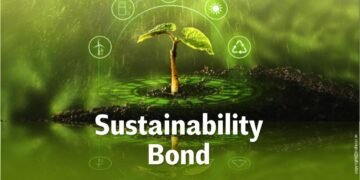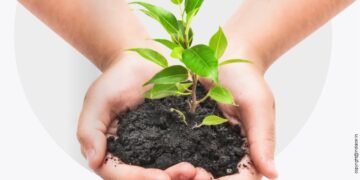Report marks a step forward in the company’s commitment to Sustainability.
Landmark Group has unveiled its inaugural sustainability report outlining the company’s efforts to promote Environmental, Social and Governance (ESG) best practices across its businesses in the Middle East and India.
The report highlights the Group-wide sustainability initiatives developed in alignment with the United Nations’ Sustainable Development Goals and in accordance with the Global Reporting Initiative (GRI) Standards.
In 2017, the Group engaged in an organization-wide effort to identify key issues that are important to the Group’s sustainability journey which led to the launch of a first-of-its kind Landmark Happiness Movement impacting 55,000 employees across Middle East and India.
Over the last two years, the company has rolled out several initiatives with an aim to establish greater trust and engagement amongst all its stakeholders and ensuring a positive impact on the environment.
Commenting on the launch of the Group’s first sustainability report, Renuka Jagtiani, Chairwoman and CEO, Landmark Group, said, “At Landmark Group, we have always been invested in the future. We believe in looking ahead to build today to achieve tomorrow. As we continue to evolve, the sustainable development of both people and the environment is crucial. Our first Sustainability Report details the steps we have taken across our organization, towards our sustainability journey. These priorities are aligned to the United Nations Sustainable Development Goals (SDGs) as well as national agendas in the geographies where we operate. It’s early days in our sustainability journey and we are committed to continue strongly on this path.”
In India, the report underlines some of the key activities undertaken by the Landmark Group through ‘Landmark Cares’, the overarching umbrella for its CSR initiatives. ‘Beat Diabetes’, on World Diabetes Day every year in November, is the oldest flagship imitative where free Random Blood Sugar Testing is provided to customers across several Lifestyle & Max outlets.
The ‘Get Active’ program which focuses on creating awareness about Non-Communicable Diseases (NCD) among Slum Community Members and Manufacturing Industrial Workers by conducting free NCD Screening in their community and factories.
The ‘Life Ahead’ program that continues to build the capacity of women slum dwellers to manage and prevent NCD among their family and community and the ‘Eat Healthy’ program which supports The Akshaya Patra Foundation in providing mid-day meals throughout the year to unserved Government Schools across Rajasthan, Gujarat and Orissa through gap funding. Additionally, together with its associated partner ‘The Life Foundation’, the group has empowered, educated and enriched over 2.1 million lives through ‘The Power of 2’ campaign in stores, among others.
As an organisation which is devoted to its employees, the Group has been at the forefront of adopting and initiating employee-friendly practices as well, by empowering differently abled people.
With the launch of ‘Swabhimaan’, Landmark group in India has provided people with disabilities with not just employment, but with a source of independence, pride, and integration into the mainstream.
The report highlights the Group’s commitment to its People – through engagement, diversity & inclusion, L&D practices, health and safety standards; its Partners – through Landmark Group’s Code of Business Conduct and Ethics, Partner assessments and a Centralised Procurement system; the Environment through energy and carbon footprint reduction, water saving initiatives and waste management; for its Customers through a robust loyalty programme, using data analytics to serve customers better and omni-channel practices; and towards the Community – through initiatives like the Beat Diabetes and partnerships with some of the region and India’s prominent non-profit organisations.
These support the UN Sustainable Development Goals, notably SDG 2 (Zero Hunger), 3 (Good Health and Well-being), 4 (Quality Education), 5 (Gender Equality), 7 (Affordable and Clean energy), 8 (Decent Work and Economic Growth), 9 (Industry Innovation and Infrastructure) 10 (Reduced Inequalities) and 12 (Responsible Consumption and Production).


























